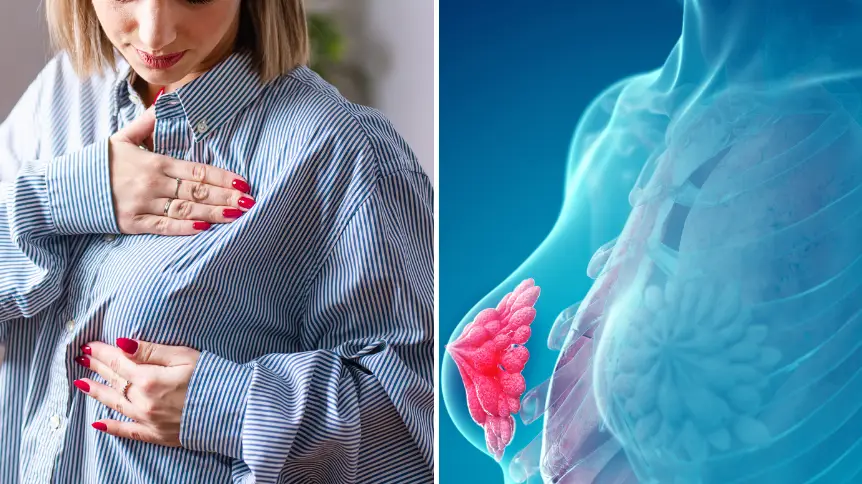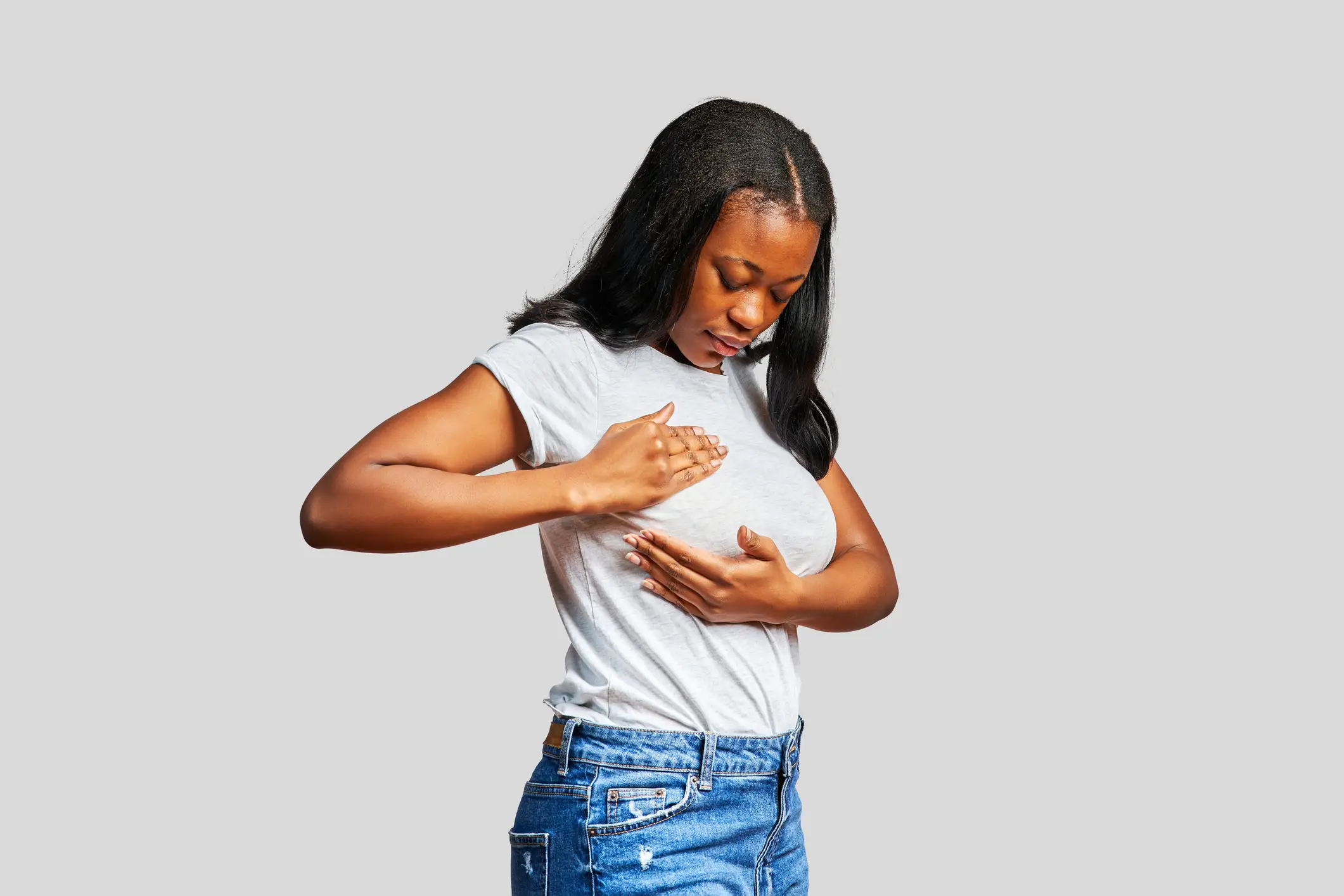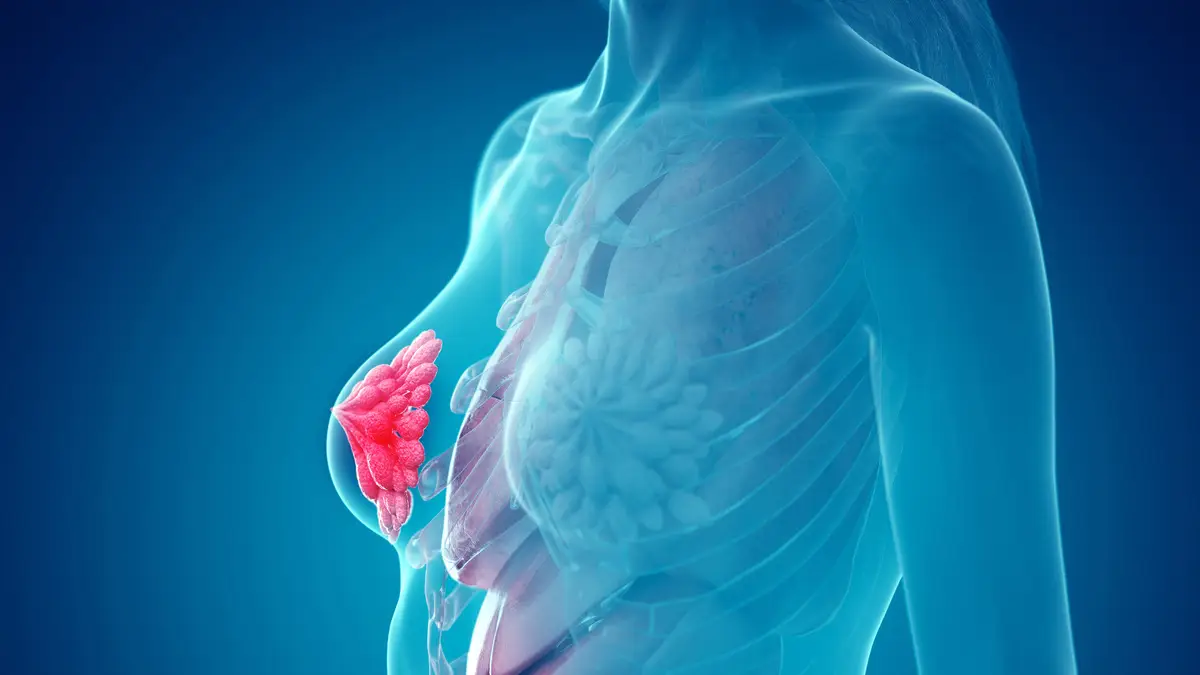
A health professional has shared insights on when to seek advice from a doctor with regards to the colour of your breasts.
We all know that breasts come in all shapes and sizes, and it's common knowledge that we should regularly check for any irregular lumps and bumps - and if we find them, we should always have them checked out by a doctor.
But it turns out there's another thing we should be aware of - the colour or shade of them.

Advert
One colour could suggest a rare form of inflammatory breast cancer that affects just one percent to five percent of all breast cancers, but is very aggressive.
That colour is purple.
When it comes to inflammatory breast cancer, Health Central explains that the 'cells grow in and block lymphatic vessels - tubes that drain fluid, damaged cells, germs, and other debris from your tissues.'
They add: "The cancer is called 'inflammatory' because the breasts become swollen and inflamed."

'There may be no lumps'
Associate professor of radiation oncology at the Duke University School of Medicine and director of radiation oncology for breast cancer for Duke Health System, Rachel Blitzblau, M.D., says: "Inflammatory breast cancer is not common, so many times it may just be an infection or something benign. But if there is a rapid change happening in the breast, it’s important not to wait or to just assume that it’s OK. Seek care to have it evaluated."
As previously mentioned, many of us are accustomed to searching for lumps to identify a possibility of breast cancer.
But with inflammatory breast cancer, there may be no lump at all.

The breast turns red or pink and swells up, and that is what we should be on the look out for.
Dr. Bliztbau explains that the breast turns these colours due to being 'inflamed from cancer cells blocking lymphatic vessels under the skin.'
In some cases, an inflamed breast 'appears a slightly different colour - purple instead of red - especially in skin of colour.'
According to the American Cancer Society, there are other symptoms of inflammatory breast cancer.
Further symptoms of inflammatory breast cancer:
- Dimpled skin on the breast that looks like the skin of an orange
- Nipple that is turned inward
- One breast that is larger and/or heavier than the other
- Painful, sore, or itchy breasts
- Swelling of lymph nodes under the arms or near the collarbone
Dr. Bliztbau adds that we should pay attention to the speed of the symptoms.
She says: "One of the criteria for calling it inflammatory breast cancer is that the symptoms have to be present for less than six months, but often women are noticing changes over days or weeks."
She adds that many cases of inflammatory breast cancers are diagnosed due to the noticeable and rapid changes.
Director of the Inflammatory Breast Cancer Program at Dana-Farber Cancer Institute, Filipa Lynce, M.D., adds that men can also get inflammatory breast cancer.
She states: "It’s very rare, but it can happen."
If you’ve been affected by any of these issues and want to speak to someone in confidence, contact Macmillan’s Cancer Support Line on 0808 808 00 00, 8am–8pm seven days a week.